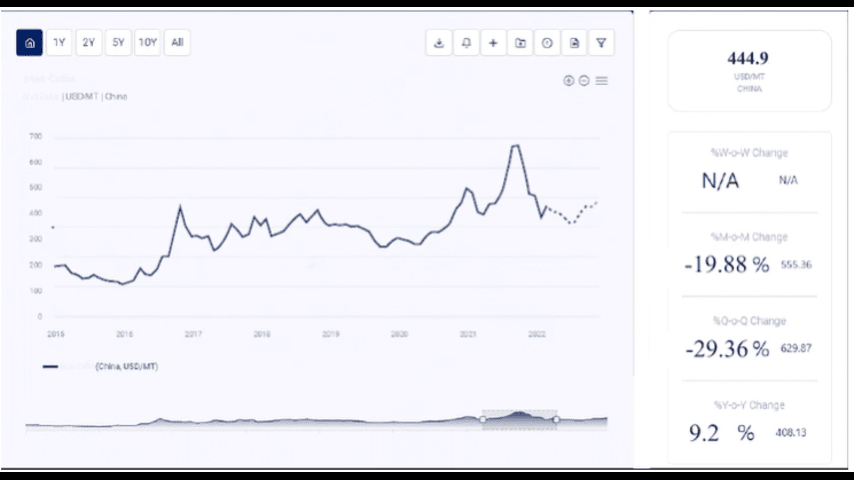In today’s interconnected world, the idea of working in a foreign country holds great appeal for many professionals. A career abroad often promises not just financial gain but also exposure to different cultures, an enriched skill set, and unique life experiences. However, the process of securing employment overseas involves various legal and bureaucratic requirements. One of the most essential steps for anyone looking to work in a foreign country is birth certificate attestation. Though often overlooked, this step is crucial, as it validates one’s identity and citizenship in the eyes of a foreign government. This article explores why birth certificate attestation is vital for employment abroad, the process it involves, and the benefits it provides in securing opportunities across borders.
Understanding Birth Certificate Attestation
Birth certificate attestation is the process of verifying and authenticating a birth certificate by relevant authorities so that it can be accepted as a legitimate document in another country. This involves confirming that the birth certificate is genuine, was issued by an authorized entity in the individual’s home country, and holds legal value.
For those aiming to work abroad, birth certificate attestation is often necessary to prove age, citizenship, and family background, all of which play a role in establishing eligibility for residency, employment, and visa approval. Many countries demand this attestation to prevent fraudulent activities, illegal immigration, and identity theft, which have become increasingly sophisticated in the globalized world.
The Necessity of Birth Certificate Attestation for Employment Abroad
1. Proof of Authenticity and Trustworthiness
A birth certificate is one of the most fundamental identity documents. To gain employment in a foreign country, it’s crucial to establish one’s authenticity. Birth certificate attestation provides a layer of verification, as the attested document signifies that the individual’s details—such as date and place of birth—are accurate and confirmed by their home country’s government. This builds trust with foreign employers and immigration authorities, who may hesitate to accept documents without formal authentication.
2. Facilitating the Visa Process
For work visas, particularly in countries with stringent immigration policies, an attested birth certificate is often mandatory. Immigration authorities use it to verify the applicant’s identity, age, and nationality, helping them determine eligibility for a work visa. Countries that impose strict visa regulations, such as the USA, UK, Canada, and Gulf nations, often require that all important documents, including birth certificates, are attested. Without this attestation, even highly qualified candidates may face visa rejections or delays.
3. Ensuring Compliance with Foreign Employment Policies
Each country has its own set of regulations regarding foreign employees, and birth certificate attestation is a standard requirement. In countries where foreign workers are integrated into the workforce, having an attested birth certificate is often non-negotiable. This step demonstrates that the applicant has complied with international legal norms and respects the host country’s immigration laws. Failure to comply with this requirement could lead to legal issues, such as deportation or inability to secure employment, even after being hired.
4. Protection Against Identity Theft and Fraud
The globalized nature of employment brings concerns about identity theft and fraud, which have become pressing issues in many countries. Attestation serves as a safeguard by ensuring that only genuine, verified documents are used for official purposes. This deters individuals who might attempt to assume false identities, thus protecting both the applicant and the hiring organization. Companies are often held accountable for verifying the identities of their foreign employees; using attested documents ensures that they follow correct procedures.
5. Simplifying Family Visa Procedures
For employees moving abroad with their families, attestation of birth certificates can streamline the family visa process. Many countries request attested birth certificates of dependents to establish family relationships before issuing dependent visas. This verification process confirms that the applicant’s children or spouse are legally recognized family members, simplifying the procedure of acquiring family visas and reducing potential complications.
6. Establishing Eligibility for Benefits and Social Services
Employment abroad often provides access to various benefits and social services, such as healthcare, social security, and education for dependents. However, these services are usually reserved for individuals who can prove their identity and legal status. An attested birth certificate helps expatriate workers and their families gain access to these benefits by confirming their eligibility. Without proper documentation, foreign workers may face challenges in accessing these services, impacting their quality of life in the host country.
The Attestation Process: How It Works
Birth certificate attestation can be a multi-stage process, involving several authorities at both the national and international levels. The stages of attestation typically include:
-
Notary Attestation: The process usually begins with a notary in the individual’s home country. The notary verifies that the birth certificate is a legitimate document, typically by cross-referencing with official records.
-
Home Department Attestation: The state or local government where the certificate was issued must authenticate it. This step is crucial because it involves government confirmation of the document’s legitimacy.
-
Ministry of External Affairs (MEA) Attestation: The birth certificate then goes to the MEA or equivalent central government authority for attestation. This ministry is responsible for confirming that the document is valid on a national level and suitable for international use.
-
Embassy or Consulate Attestation: The final stage involves attestation by the embassy or consulate of the country where the applicant intends to work. This step confirms that the document meets the specific standards of the host country.
Each of these stages is essential, as the attestation must pass through both national and foreign authorities to gain acceptance in another country. While the process can be time-consuming, it is an indispensable step toward legal employment abroad.
The Benefits of Birth Certificate Attestation
1. Enhanced Career Mobility
With an attested birth certificate, individuals enjoy the freedom to explore career opportunities in multiple countries. Since the attestation process meets international standards, the document becomes universally accepted, enhancing the individual’s career mobility and widening their job prospects.
2. Streamlined Documentation for Future Purposes
Once a birth certificate is attested, it can be used for multiple purposes beyond employment, such as applying for long-term residency or securing admission for dependents in schools abroad. The attested document becomes a vital part of the individual’s record, simplifying future interactions with government entities in the host country.
3. Ease in Legal and Financial Processes
Attested birth certificates are often required for opening bank accounts, buying property, or dealing with legal matters in a foreign country. The attestation not only facilitates these processes but also ensures that the individual is recognized as a legal resident, allowing them to manage their affairs more effectively.
4. Establishing a Sense of Security for Employers
Employers prefer hiring individuals who can provide verified documentation. An attested birth certificate assures employers that the candidate has undergone the necessary legal procedures to prove their authenticity, reducing any concerns regarding identity fraud or lack of transparency.
Challenges in the Attestation Process
While birth certificate attestation is critical, it is not without its challenges. The process can be complex, involving multiple steps, each with specific fees and timeframes. Additionally, applicants may encounter delays if there are discrepancies in documentation or if they are unfamiliar with the legal requirements. To avoid such issues, it is often beneficial to seek guidance from professionals or consult with immigration agencies that specialize in document attestation for employment abroad.
Final Thoughts
In a world where international careers are more accessible than ever, document verification processes such as birth certificate attestation have become foundational to building a trusted, transparent global workforce. Attestation not only serves as a legal requirement but also provides a level of reassurance and security to both employees and employers, creating a smoother path to global employment. By taking this step, professionals position themselves favorably for career opportunities abroad, facilitating a legal and hassle-free transition into their host countries.
As globalization continues to drive professional mobility, the significance of birth certificate attestation will only grow. For any professional aspiring to work in a foreign land, understanding and complying with this requirement is a vital step that goes beyond mere paperwork; it is a testament to the individual’s commitment to respecting the laws and values of the host country, ultimately leading to a more stable and rewarding international career.














